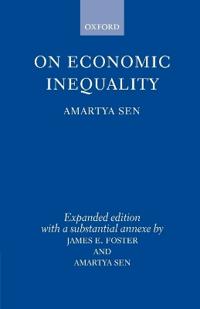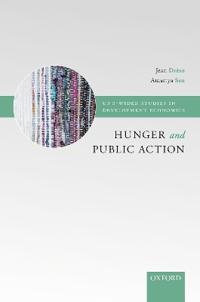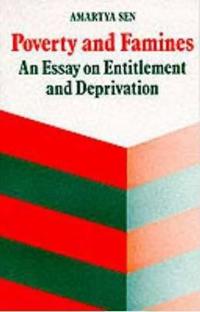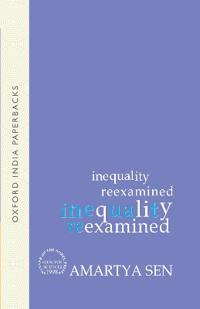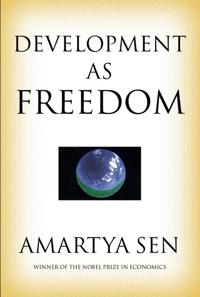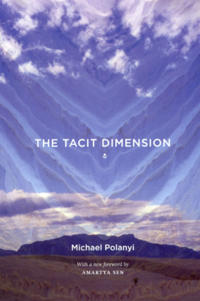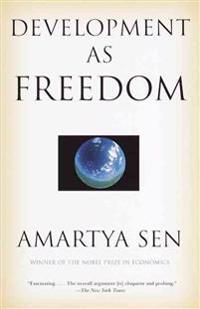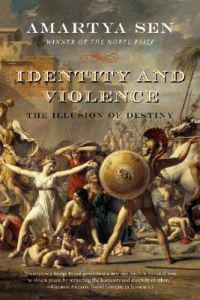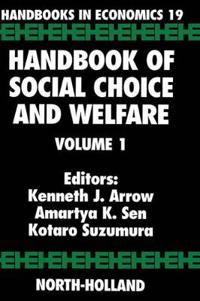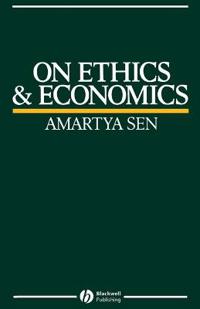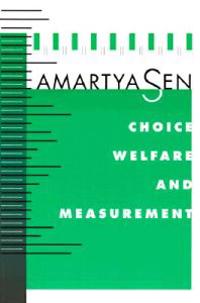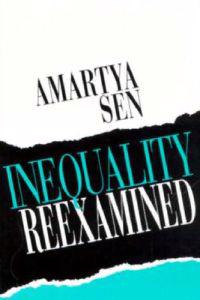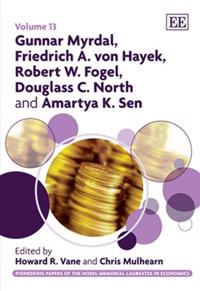Commodities and Capabilities (Häftad)
avAmartya K. Sen
ISBN: 9780195650389 - UTGIVEN: 1999-05This volume presents a set of inter-related theses concerning the foundations of welfare economics, and in particular about the assessment of personal well-being and advantage. The argument presented focuses on the capability to function, such as what a person can do or can be, questioning in the pr[...]
On Economic Inequality (Häftad)
avAmartya K. Sen
ISBN: 9780198281931 - UTGIVEN: 197312First published in 1973, this book presents a systematic treatment of the conceptual framework as well as the practical problems of measurement of inequality. Alternative approaches are evaluated in terms of their philosophical assumptions, economic content, and statistical requirements. In a new in[...]
Hunger and Public Action (Häftad)
avJean Dreze, Amartya K. Sen
ISBN: 9780198283652 - UTGIVEN: 199101This study was well-received and widely discussed when it appeared in hardback in 1990. It is devoted to analysis of the enduring problem of hunger in the modern world, and of the role that public action can play in countering it. The book is divided into four parts. The first attempts to provide [...]
Poverty and Famines (Häftad)
avAmartya K. Sen
ISBN: 9780198284635 - UTGIVEN: 198301This book focuses on the causes of starvation in general and famines in particular. The traditional analysis of famines is shown to be fundamentally defective, and the author develops an alternative analysis.[...]
Inequality Reexamined (Häftad)
avAmartya K. Sen
ISBN: 9780198289289 - UTGIVEN: 199509This book brings together and develops some of the most important economic, social, and ethical ideas Sen has explored over the last two decades. It examines the claims of equality in social arrangements, stressing that we should be concerned with people's capabilities rather than either their resou[...]
On Economic Inequality: Enlarged Edition (Inbunden)
avAmartya K. Sen
ISBN: 9780198292975 - UTGIVEN: 1997-06-19Development as Freedom (Inbunden)
avAmartya K. Sen
ISBN: 9780198297581 - UTGIVEN: 1999-10In Development as Freedom Amartya Sen quotes the eighteenth century poet William Cowper on freedom: Freedom has a thousand charms to show, That slaves howe'er contented, never know. Sen explains how in a world of unprecedented increase in overall opulence, millions of people living in rich and poor [...]
Public Health, Ethics, and Equity (Inbunden)
avSudhir Anand, Fabienne Peter, Amartya K. Sen
ISBN: 9780199276363 - UTGIVEN: 2004-12-09The Tacit Dimension (Pocket)
avMichael Polanyi, Amartya Kumar Sen, Michael Polanyi
ISBN: 9780226672984 - UTGIVEN: 200905'I shall reconsider human knowledge by starting from the fact that we can know more than we can tell', writes Michael Polanyi, whose work paved the way for the likes of Thomas Kuhn and Karl Popper. "The Tacit Dimension", originally published in 1967, argues that such tacit knowledge - tradition, inh[...]
Development as Freedom (Häftad)
avAmartya K. Sen
ISBN: 9780385720274 - UTGIVEN: 200008By the winner of the 1988 Nobel Prize in Economics, an essential and paradigm-altering framework for understanding economic development--for both rich and poor--in the twenty-first century.
Freedom, Sen argues, is both the end and most efficient means of sustaining economic life and th[...]Identity And Violence (Pocket)
avAmartya Kumar Sen
ISBN: 9780393329292 - UTGIVEN: 200702Arguing that the violence of today's world is as much as factor of misunderstanding as it is of cultural differences, a Nobel Laureate explains that modern conflicts have origins in illusions about identity, morality, and other factors, in an account that presents the author's vision of how the worl[...]
Handbook of Social Choice and Welfare (Inbunden)
avKenneth J. Arrow, Amartya Kumar Sen, Kotaro Suzumura
ISBN: 9780444829146 - UTGIVEN: 200208"The Handbook of Social Choice and Welfare" presents, in two volumes, essays on past and on-going work in social choice theory and welfare economics. The first volume consists of four parts. In Part 1 (Arrovian Impossibility Theorems), various aspects of Arrovian general impossibility theorems, illu[...]
On Ethics and Economics (Häftad)
avAmartya K. Sen
ISBN: 9780631164012 - UTGIVEN: 199101In this elegant critique, Amartya Sen argues that a closer contact between welfare economics and modern ethical studies can substantively enrich and benefit both disciplines.He argues further that even predictive and descriptive economics can be helped by making more room for welfare economic consid[...]
Choice, Welfare and Measurement (Häftad)
avAmartya K. Sen
ISBN: 9780674127784 - UTGIVEN: 199709Choice, Welfare and Measurement contains many of Amartya Sen's most important contributions to economic analysis and methods, including papers on individual and social choice, preference and rationality, and aggregation and economic measurement. A substantial introductory essay interrelates his dive[...]
Inequality Reexamined (Pocket)
avAmartya Kumar Sen
ISBN: 9780674452565 - UTGIVEN: 199503In this deft analysis, Amartya Sen argues that the dictum "all men are created equal" serves largely to deflect attention from the fact that we differ in age, gender, talents, physical abilities as well as in material advantages and social background. He argues for concentrating on higher and more b[...]
Amartya K. Sen (häftad)
ISBN: 9781640697768 - UTGIVEN: 2017-10Professor Amartya K. Sen, a Nobel Laureate in developmental mathematical economics in 1998, currently Professor at Harvard, is well known for his work on famine, human development index, welfare economics, and basic causes of poverty and widespread hunger, especially in the developing world. However[...]
Gunnar Myrdal, Friedrich A. von Hayek, Robert W. Fogel, Douglass C. North and Amartya K. Sen
ISBN: 9781849804011 - UTGIVEN: 2011-11This groundbreaking series brings together a critical selection of key papers by the Nobel Memorial Laureates in Economics that have helped shape the development and present state of economics. The editors have organised this comprehensive series by theme and each volume focuses on those Laureates w[...]


